Themed collection Polymer Chemistry 15th anniversary regional spotlight collection: China

Progress on chemical modification of cellulose in “green” solvents
Chemical modification of cellulose in "green" solvents.
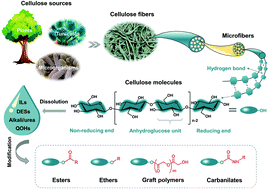
Polym. Chem., 2022,13, 359-372
https://doi.org/10.1039/D1PY00879J
Photopolymerization activated by photobase generators and applications: from photolithography to high-quality photoresists
Light-induced polymerization has become a very attractive technology for advanced manufacturing of polymers.
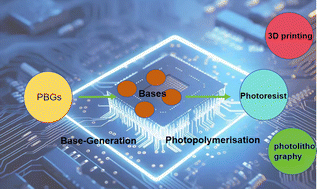
Polym. Chem., 2024,15, 248-268
https://doi.org/10.1039/D3PY00992K
A review of the properties and applications of bioadhesive hydrogels
Due to their outstanding properties, bioadhesive hydrogels have been extensively studied by researchers in recent years.
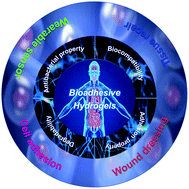
Polym. Chem., 2021,12, 3721-3739
https://doi.org/10.1039/D1PY00282A
Polymerization techniques in polymerization-induced self-assembly (PISA)
The development of controlled/“living” polymerization greatly stimulated the prosperity of the fabrication and application of block copolymer nano-objects.
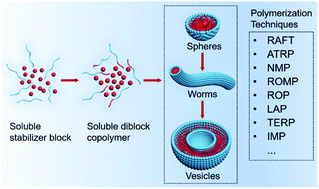
Polym. Chem., 2020,11, 3673-3689
https://doi.org/10.1039/D0PY00455C
A continuing legend: the Brookhart-type α-diimine nickel and palladium catalysts
Here we will summarize some of the recent advances in α-diimine ligand developments, as well as some new and challenging monomers that this class of catalysts can address through these ligand improvements.

Polym. Chem., 2019,10, 2354-2369
https://doi.org/10.1039/C9PY00226J
Polymer-based nanocomposites for heavy metal ions removal from aqueous solution: a review
A review of versatile polymer-based composites containing different functional organic and/or inorganic counterparts for the removal of hazardous metal ions from wastewater solutions.
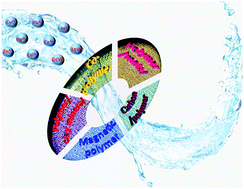
Polym. Chem., 2018,9, 3562-3582
https://doi.org/10.1039/C8PY00484F
Redox-responsive polymers for drug delivery: from molecular design to applications
The up-to-date development of redox-responsive polymers for drug delivery was reviewed from the view of functional groups.
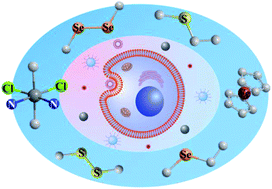
Polym. Chem., 2014,5, 1519-1528
https://doi.org/10.1039/C3PY01192E
Phenylboronic acid-based glucose-responsive polymeric nanoparticles: synthesis and applications in drug delivery
This review highlights the recent advances in synthesis of phenylboronic acid-based glucose-responsive nanoparticles and their applications in drug delivery.
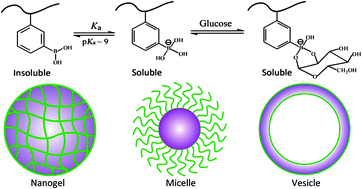
Polym. Chem., 2014,5, 1503-1518
https://doi.org/10.1039/C3PY01202F
Recent advances in RAFT dispersion polymerization for preparation of block copolymer aggregates
RAFT polymerization is a powerful strategy for the preparation of well-defined block copolymers and the creation of diverse polymer morphologies.

Polym. Chem., 2013,4, 873-881
https://doi.org/10.1039/C2PY20612A
Schiff's base as a stimuli-responsive linker in polymer chemistry
The developments in utilizing Schiff's base based on its dynamic properties in polymer chemistry are discussed.
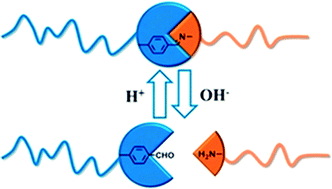
Polym. Chem., 2012,3, 3045-3055
https://doi.org/10.1039/C2PY20290E
Benzo[1,2-b:4,5-b′]dithiophene -based conjugated polymers : band gap and energy level control and their application in polymer solar cells
Band gaps and molecular energy level modulations of conjugated polymers containing benzo[1,2-b:4,5-b′]dithiophene (BDT) exhibit promising power conversion efficiencies for polymer solar cells.
![Graphical abstract: Benzo[1,2-b:4,5-b′]dithiophene-based conjugated polymers: band gap and energy level control and their application in polymer solar cells](/en/Image/Get?imageInfo.ImageType=GA&imageInfo.ImageIdentifier.ManuscriptID=C1PY00197C&imageInfo.ImageIdentifier.Year=2011)
Polym. Chem., 2011,2, 2453-2461
https://doi.org/10.1039/C1PY00197C
Conjugated polymers for high-efficiency organic photovoltaics
In this review we summarize the most recent developments in conjugated polymers for high-efficiency organic photovoltaic devices. We focus on correlations of polymer chemical structures with properties, which may guide rational structural design and evaluation of photovoltaic materials.
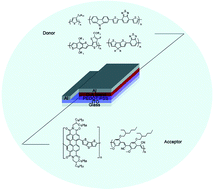
Polym. Chem., 2010,1, 409-419
https://doi.org/10.1039/B9PY00325H
Autonomous self-healing of poly(acrylic acid) hydrogels induced by the migration of ferric ions
Autonomous self-healing of the hydrogel was achieved through the dynamic bonding of physical cross-linking and the migration of ferric ions.
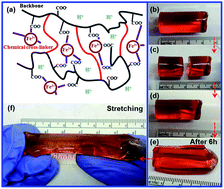
Polym. Chem., 2013,4, 4601-4605
https://doi.org/10.1039/C3PY00692A
Facilely prepared inexpensive and biocompatible self-healing hydrogel: a new injectable cell therapy carrier
An inexpensive, biocompatible self-healing hydrogel as a new injectable cell therapy carrier has been facilely developed.
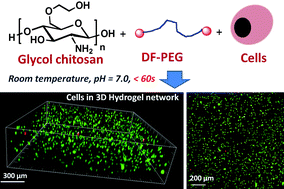
Polym. Chem., 2012,3, 3235-3238
https://doi.org/10.1039/C2PY20627G
Oxidant -induced dopamine polymerization for multifunctional coatings
Polydopamine-coatings can be prepared in acidic, neutral and alkaline aqueous media by oxidant-induced polymerization, which is material-independent and multifunctional for surface modification.
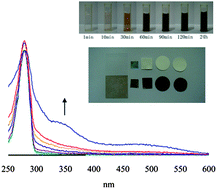
Polym. Chem., 2010,1, 1430-1433
https://doi.org/10.1039/C0PY00215A
High-performance polyethylene elastomers using a hybrid steric approach in α-diimine nickel precatalysts
In this study, hybrid steric hindrance was introduced into the α-diimine structure to prepare a set of nickel complexes, aiming to enhance catalytic performance and polyethylene properties simultaneously for ethylene polymerization.

Polym. Chem., 2024,15, 1437-1452
https://doi.org/10.1039/D4PY00061G
New long-wavelength D–π-A–π-D chalcone photoinitiator for visible light polymerization with photobleaching and biocompatibility properties
Four chalcones with excellent light absorption properties and biocompatibility have been designed and synthesized for visible light polymerization.

Polym. Chem., 2023,14, 952-962
https://doi.org/10.1039/D2PY01601J
A fully bio-based Schiff base vitrimer with self-healing ability at room temperature
The design of a green and renewable bio-based self-healing vitrimer has attracted extensive attention due to the increasing emphasis on an environment friendly society.

Polym. Chem., 2023,14, 862-871
https://doi.org/10.1039/D2PY00900E
Perfluorocyclobutyl-containing transparent polyimides with low dielectric constant and low dielectric loss
The combination of loose chain packing and high fluoro content endows PFCB-containing polyimides with excellent optical transparency and dielectric properties.

Polym. Chem., 2022,13, 3949-3955
https://doi.org/10.1039/D2PY00550F
Synthesis and characterization of amide-bridged colorless polyimide films with low CTE and high optical performance for flexible OLED displays
Starting from three novel amide-incorporating dianhydride monomers, we synthesized a series of amide-bridged cPI films that have ultra-low CTE and high Tg due to the formation of hydrogen bonds as well as great optical performance.

Polym. Chem., 2021,12, 5364-5376
https://doi.org/10.1039/D1PY00762A
Tuning the mechanical and dynamic properties of imine bond crosslinked elastomeric vitrimers by manipulating the crosslinking degree
Imine bond crosslinked networks with tunable mechanical and dynamic properties are prepared by varying the precursor molecular weight and network crosslinking degree.

Polym. Chem., 2020,11, 1348-1355
https://doi.org/10.1039/C9PY01826C
Effects of synthesis methodology on microporous organic hyper-cross-linked polymers with respect to structural porosity, gas uptake performance and fluorescence properties
The structural characteristics of hyper-cross-linked polymers (HCPs) make them interesting for a wide variety of applications.
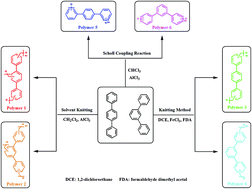
Polym. Chem., 2019,10, 1299-1311
https://doi.org/10.1039/C8PY01730A
Diels–Alder dynamic crosslinked polyurethane/polydopamine composites with NIR triggered self-healing function
A new kind of ultrafast near-infrared light responsive shape memory assisted self-healing polymer composite was prepared by introducing polydopamine particles (PDAPs) into polyurethane containing Diels–Alder bonds.
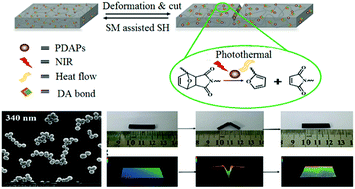
Polym. Chem., 2018,9, 2166-2172
https://doi.org/10.1039/C8PY00162F
A pH, glucose, and dopamine triple-responsive, self-healable adhesive hydrogel formed by phenylborate–catechol complexation
A pH, glucose, and dopamine triple-responsive, self-healable and adhesive polyethylene glycol hydrogel was developed via the formation of phenylborate–catechol complexation.

Polym. Chem., 2017,8, 2997-3005
https://doi.org/10.1039/C7PY00519A
Highly cost-effective and high-strength hydrogels as dye adsorbents from natural polymers: chitosan and cellulose
Cost-effective chitosan/REC/cellulose hydrogels with high-strength are used for highly efficient dye adsorption.
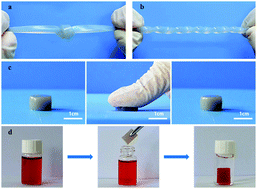
Polym. Chem., 2017,8, 2913-2921
https://doi.org/10.1039/C7PY00223H
A two-dimensional conjugated polymer framework with fully sp2-bonded carbon skeleton
2D conjugated COF based on olefin (C![[double bond, length as m-dash]](https://www.rsc.org/images/entities/char_e001.gif) C) linkages has been readily synthesized using the Knoevenagel condensation reaction.
C) linkages has been readily synthesized using the Knoevenagel condensation reaction.
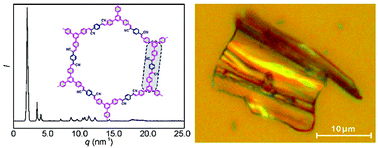
Polym. Chem., 2016,7, 4176-4181
https://doi.org/10.1039/C6PY00561F
Metal-free photoinduced electron transfer–atom transfer radical polymerization (PET–ATRP) via a visible light organic photocatalyst
This work developed the first example of PET-ATRP using a reductive pathway, which provides new opportunities for the synthesis of well-controlled polymer architectures through a photochemical approach.

Polym. Chem., 2016,7, 689-700
https://doi.org/10.1039/C5PY01765C
High strain epoxy shape memory polymer
Epoxy polymers represent a recently emerged class of thermoset shape memory polymers with superior thermo-mechanical endurance and excellent processability.
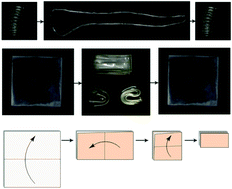
Polym. Chem., 2015,6, 3046-3053
https://doi.org/10.1039/C5PY00172B
Enzymatically crosslinked alginate hydrogels with improved adhesion properties
Alginate–dopamine (Alg–DA) conjugate, a polymer with catechol side groups instead of phenol groups, gels in situ in the presence of HRP and H2O2. The resulting hydrogels exhibit significantly improved adhesion properties.
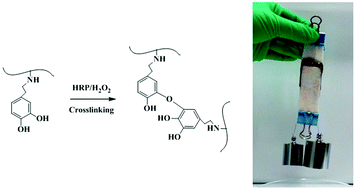
Polym. Chem., 2015,6, 2204-2213
https://doi.org/10.1039/C4PY01757A
One-step preparation of reduction-responsive poly(ethylene glycol)-poly(amino acid)s nanogels as efficient intracellular drug delivery platforms
A series of disulfide-core-cross-linked poly(ethylene glycol)-poly(amino acid)s nanogels were prepared through one-step ring-opening polymerization of N-carboxyanhydride monomers and used as efficient intracellular drug delivery carriers.
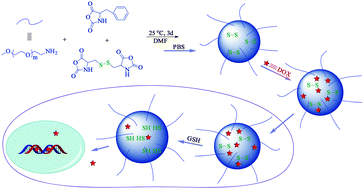
Polym. Chem., 2011,2, 2857-2864
https://doi.org/10.1039/C1PY00360G
About this collection
To celebrate the 15th anniversary of Polymer Chemistry we have curated a collection of some of our most popular articles with corresponding authors based in China. We would like to take this opportunity to thank all our contributors from China for continuing to provide high quality research to Polymer Chemistry and we look forward to seeing what developments the next 15 years will bring!
This five-part series will be showcasing some of our very best authors from across 5 regions: